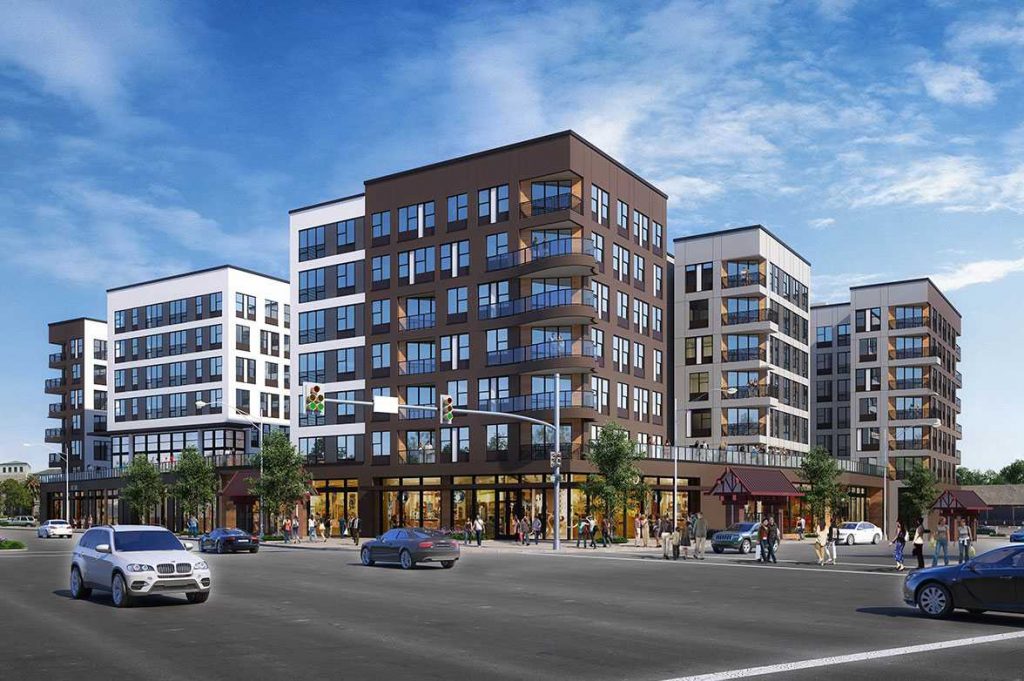California State Senator Bob Wieckowski aroused public passions in Santa Clara when it became known that he introduced a bill — SB 466 — that is popularly understood as allowing the City to bypass state law in leasing a parcel at 500 Benton St., jointly owned by Santa Clara and VTA, to developer Republic Metropolitan (ReMet).
The City had an exclusive negotiating agreement (ENA) with ReMet from 2018 until it expired in August 2020, but the project has been deeply unpopular with many Old Quad residents. Last month, the Council voted against considering a third extension of the ENA.
When news of Wieckowski’s bill became widely known, smoldering opposition came flaming back.
The Muddy Waters of California’s Surplus Public Land Laws
Public agencies looking to sell land that’s not needed for public uses — i.e. “surplus land” — are subject to both the Surplus Land Act and the Economic Opportunity Law.
The Surplus Land Act — and its 2019 amendment AB1486 — requires public agencies, before offering unused land for sale, give first right of refusal to affordable housing developers and “negotiate in good faith” for affordable housing before selling the land for any other purpose. The penalty for violating the law is 30 to 50 percent of the value of the land involved.
The law doesn’t apply to ENAs entered into before Sept. 30, 2019, provided the property is sold by Dec. 31, 2022. The City signed the ENA with ReMet in early 2018.
However, surplus land uses are also governed by the Economic Opportunity Law that allows public agencies freedom in selling and leasing public land, and do so at less than market price, as long as projects meet certain criteria about property tax revenue, affordable housing and job creation.
Neither law clearly states which has precedence and the Surplus Land Act makes no mention of leases, although the Department of Housing and Community Development says it applies to leases as well as sales.
The Surplus Land Act’s application to the 500 Benton project first came up in public discussion in July 2020, when the City Council considered a third extension of the 2018 ENA, which the Council unanimously approved, pending approval by VTA.
City Attorney Brian Doyle told the Council that he asked ReMet to indemnify the City for any possible violations of the Surplus Land Act and Mayor Lisa Gillmor stated her opinion that the parcel wasn’t surplus land.
At some point — it’s not clear when — Doyle decided that the parcel was subject to the law.
“Our Office and VTA counsel both believe that the potential disposition of the City’s property at 500 Benton does not fall within an exemption under the Surplus Land Act,” Doyle told The Weekly.
This is where Wieckowski’s bill comes in.
Clarification or ‘Clear as Mud’?
SB 466 “would authorize the City of Santa Clara, when disposing of the specified property, to utilize [this law’s] provisions if the property is statutorily exempt from any other property disposition procedures required by law in lieu of other requirements under law for disposing of city-owned property, but would require the city to comply with certain statutory provisions relating to environmental quality prior to selling or leasing the specified property, as applicable.”
In other words, for 500 Benton St. the Economic Opportunity Act applies, not the Surplus Land Act.
The independent Legislative Analyst panned the bill — “clear as mud” — saying, “An alternative means of meeting the goal of SB 466 would be to fix the Surplus Land Act.”
Wieckowski says that he intended to clarify the confusion in existing laws.
“I introduced SB 466 because it is important that local agencies have tools at their disposal to help promote economic development and affordable housing,” Wieckowski wrote in a statement.
“Unfortunately, legislative activity to accomplish these goals following the elimination of redevelopment agencies has added complexity around the Economic Opportunity Law and the Surplus Land Act”… creating “uncertainty” and “stymieing economic development.”
Santa Clara’s State Assemblyman Alex Lee doesn’t favor the legislation.
“I think it’s a bad precedent to carve out specific parcels for specific use in State law,” Lee said. “Sometimes there are bureaucratic challenges for cities, but this was not at the request of the City.”
As the Council has refused to consider extending the 2018 ENA, there doesn’t appear to be much point to SB 466. “We are not aware of any change that SB 466 would have on Republic Metropolitan’s proposal,” said City Attorney Doyle.
On June 21, a hearing on the bill was postponed and hasn’t been rescheduled — an indication that SB 466 may never make it to a vote.
